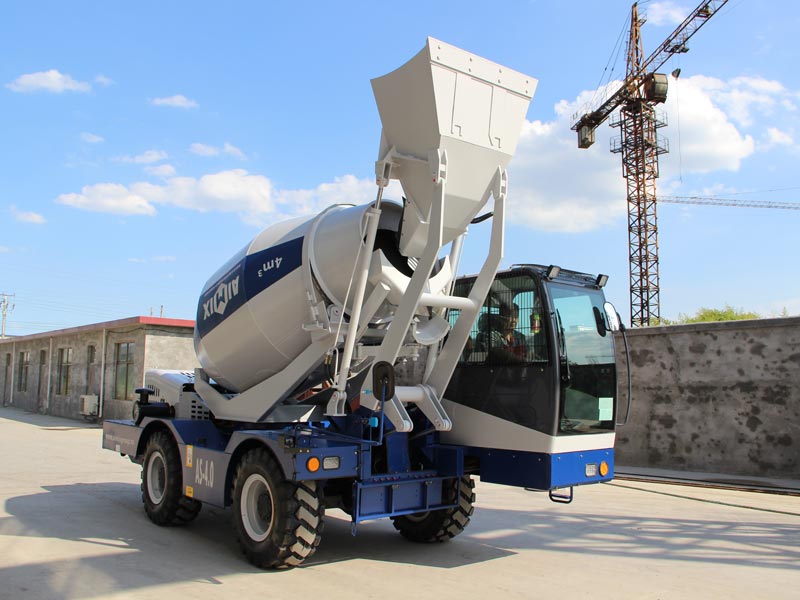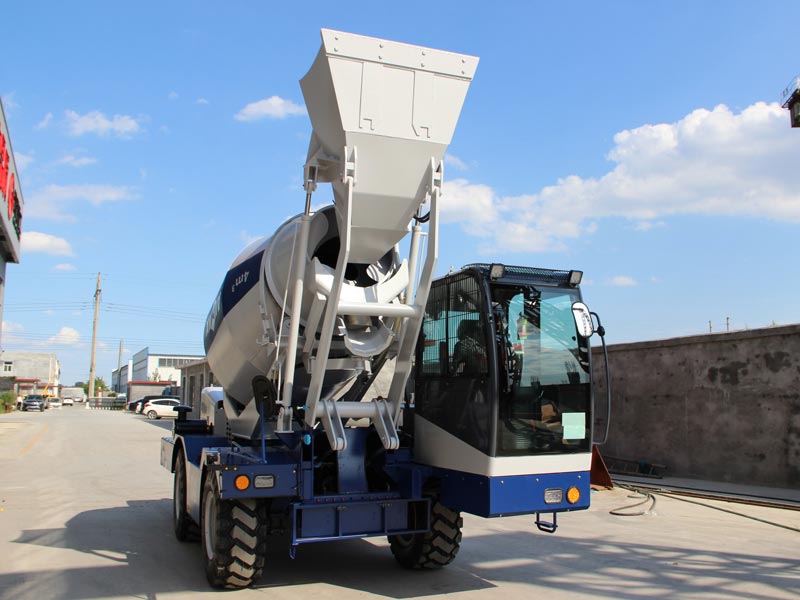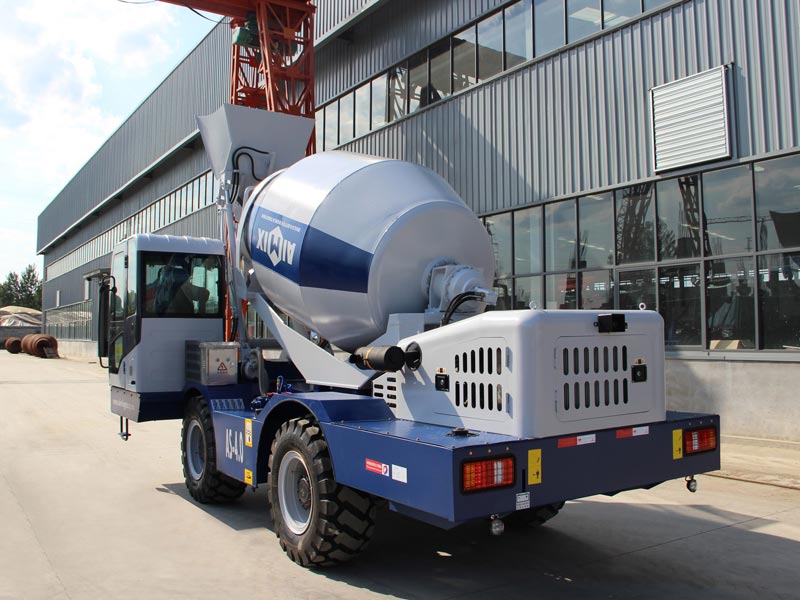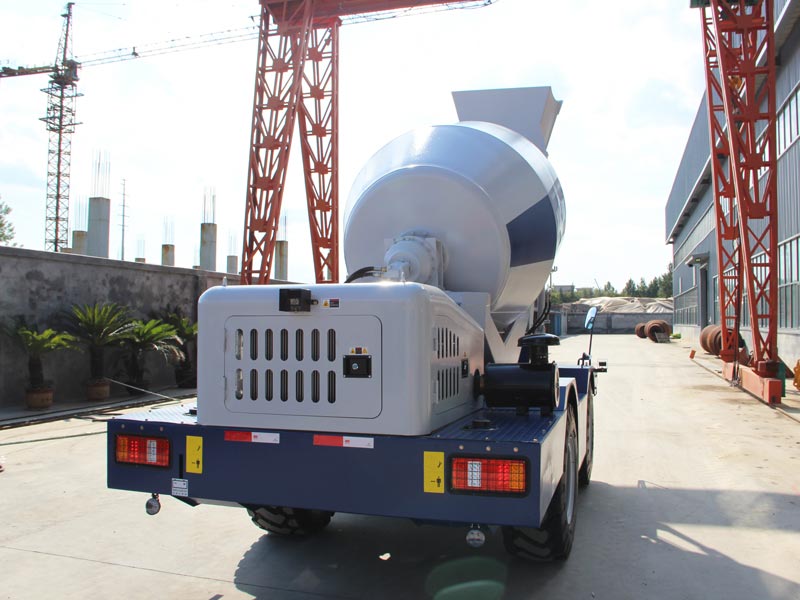Self-loading mixers combine the functionality of a concrete mixer and a loader, which not only mix the concrete efficiently but also load the ingredients automatically. This guide aims to help you navigate through the essential factors to consider when selecting the right self-loading mixer.

Capacity Requirements
The first step in choosing a self-loading mixer is to determine the capacity you need, based on the volume of concrete you plan to produce. Consider future projects as well to select a versatile mixer that can handle different job sizes.
Mobility and Terrain Adaptability
The construction site’s terrain plays a crucial role in the choice of a self-loading mixer. Features like four-wheel drive can enhance mobility and ensure that the concrete self loading mixer performs well under various site conditions.
Drum Rotation Speed and Direction
A good self-loading mixer should offer variable speeds and the flexibility to rotate clockwise and anti-clockwise, facilitating better mixing and easier discharge of the concrete.

Loading Mechanism Efficiency
Evaluate the efficiency and ease of use of this feature, as it should be capable of handling various materials easily and accurately, enhancing overall productivity.
Control System and Ease of Operation
Look for mixers with intuitive controls and digital displays that allow operators to monitor and adjust the mixing process for optimal results.
Maintenance and Durability
Choose a mixer constructed from high-quality materials resistant to wear and tear. A mixer that is easy to maintain and repair will have less downtime and lower long-term operating costs.
Fuel Efficiency
Selecting a fuel-efficient self-loading mixer can lead to significant operational savings. Compare the fuel consumption of different models to find a mixer that offers the best balance between performance and fuel economy.
Cost vs. Performance
It’s crucial to evaluate the overall value the mixer brings to your operations, considering durability, efficiency, and maintenance costs.
Judging the reliability of a self-loading mixer manufacturer involves several key steps and considerations. By thoroughly evaluating each aspect, you can make an informed decision that ensures you partner with a trustworthy and competent manufacturer. Here are some crucial points to consider:
How To Judge Whether The Self Loading Mixer Manufacturer Is Reliable Or Not
1. Company History and Reputation
- Years in Business: Longevity can be a good indicator of reliability. Companies that have been around for many years often have a track record of delivering quality products and overcoming industry challenges.
- Reputation: Look for reviews, testimonials, and feedback from previous customers. Online forums, industry publications, and word-of-mouth recommendations can provide valuable insights into the company’s reputation.
2. Quality Certifications
- ISO Certification: Check if the manufacturer holds any International Organization for Standardization (ISO) certifications, which indicate that they adhere to internationally recognized quality management principles.
- Industry Specific Certifications: Depending on your location and the specific type of equipment, there may be additional certifications or standards relevant to self-loading mixers that the manufacturer should comply with.
3. Product Quality and Innovation
- Material and Build Quality: Assess the materials used and the build quality of their self loading concrete mixer with pump. High-quality manufacturers invest in durable materials and advanced manufacturing processes.
- Innovation: Reliable manufacturers often invest in research and development to innovate and improve their products, ensuring they meet current market needs and safety standards.
4. After-Sales Support and Service
- Warranty Terms: A strong warranty can be a sign of the manufacturer’s confidence in their product. Look for comprehensive warranty terms that cover significant components and labor.
- Spare Parts Availability: Ensure the manufacturer has a system in place for providing spare parts and that these parts are readily available without long wait times.
- Customer Service: Responsive and helpful customer service before and after purchase is crucial. Test their support system by making inquiries and noting the responsiveness and helpfulness of their team.
5. Financial Stability
Credit Rating and Financial Reports: If possible, check the manufacturer’s credit rating and financial reports. Manufacturers in good financial health are more likely to offer consistent quality and support over time.

6. Site Visits and Product Demonstrations
- Factory Tours: If feasible, visit the manufacturing facility to get a firsthand look at their operation, quality control processes, and workforce.
- Live Demonstrations: Seeing the equipment in action during a live demonstration can provide valuable insights into its performance, ease of use, and maintenance requirements.
7. Compare Multiple Manufacturers
- Bids and Quotes: Obtain bids and quotes from several manufacturers. Comparing these can offer insights beyond just price, including lead times, customization options, and other terms.
- Industry Events: Attend trade shows and industry events where multiple manufacturers are present. This provides an opportunity to directly compare products and speak with representatives face-to-face.

8. Compliance and Legal Considerations
- Regulatory Compliance: Ensure the manufacturer complies with all local and international regulations applicable to the manufacturing and operation of self-loading mixers.
- Patents and Intellectual Property: Verify that the manufacturer respects intellectual property laws and that their products are not involved in any patent infringement issues.
In Conclusion
Selecting the best self-loading concrete mixer requires careful consideration of several factors, including capacity, mobility, drum rotation, loading efficiency, control system, maintenance, fuel efficiency, cost, and manufacturer reputation. By evaluating these aspects, you can choose a self loader mixer that meets your current needs and provides reliability and efficiency for future projects, ensuring a good return on investment.